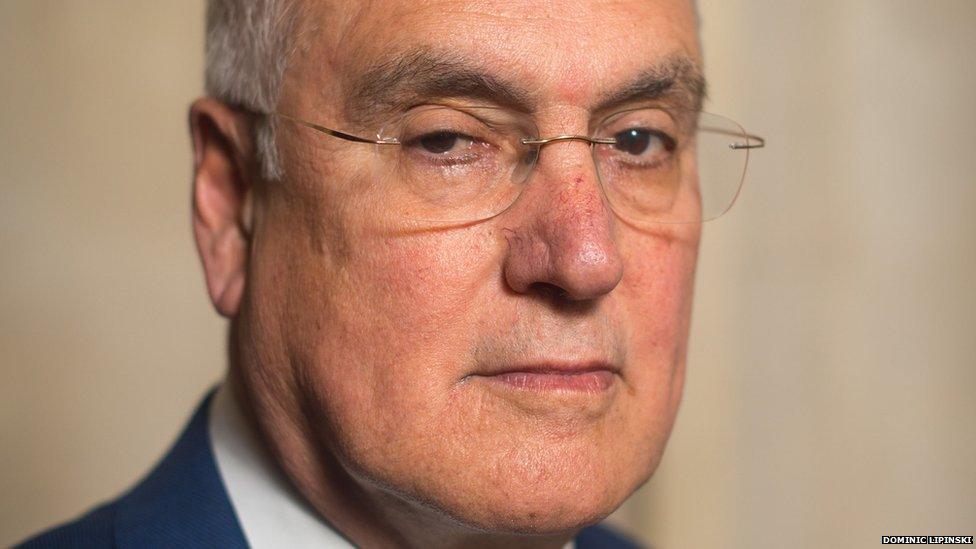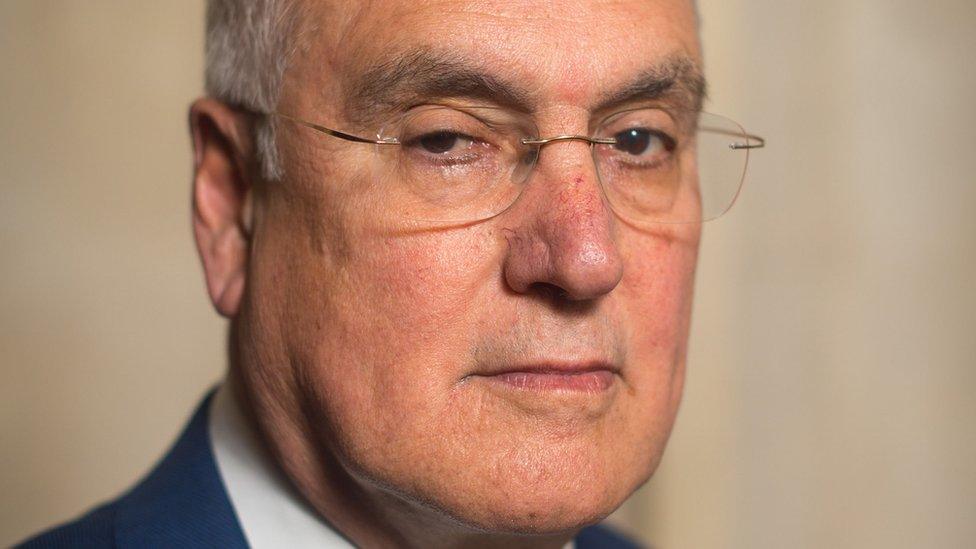Academies - accelerating ahead?
- Published

Timing is everything in politics if you want to have a chance of being heard.
The outspoken Chief Inspector of Schools, Sir Michael Wilshaw has carefully picked his moment to deliver a verdict on "serious weaknesses" at seven of the weakest performing chains of academy schools in a hard-hitting letter to the education secretary.
He doesn't hold back on what he describes as "worrying findings".
And just a few days ago the government took a further step towards removing local councils from the running of schools.
Draft plans for a national funding formula will mean the "vast bulk" of government education cash going directly to schools by 2020.
That will allow the cake to be sliced differently, but it is also a paving measure for another big government ambition - to make councils running schools in England "a thing of the past".
I understand the Treasury was keen for the funding formula announcement to be made this week, which suggests we may hear more in the Budget next week about the push for more schools to become academies.
'Cuts both ways'
Many parents in England barely register whether their local school is run by the council or by an academy trust.
They're pre-occupied with other fundamentals like a sense of order and community and, of course, exam results.
But by and large people do care whether their taxes, their public money, is well spent.

Sir Michael Wilshaw said too much was being spent on consultants
So it is no surprise that Sir Michael focuses some of his criticism not just on poor results, but on high salaries and big bank reserves.
In essence he's asking if these particular seven trusts are value for money for the pupils, the parents and taxpayers.
Is it a partial and skewed assessment as the government suggests? Certainly there are plenty of excellent academy schools too, which he acknowledges.
In terms of council-run schools, only yesterday, schools minister Nick Gibb singled out some of the worst performing local authorities in terms of GCSE results.
So it cuts both ways.
Labour wants the government to press the pause button so they can look at the system of holding academy trusts to account and ensure it's robust.
That's not going to happen. Instead the government will continue to point to its network of eight regional schools commissioners whose job it is to do just that.
If anything, all the signals are that the foot will be on the accelerator towards all schools in England becoming academies.
- Published10 March 2016
